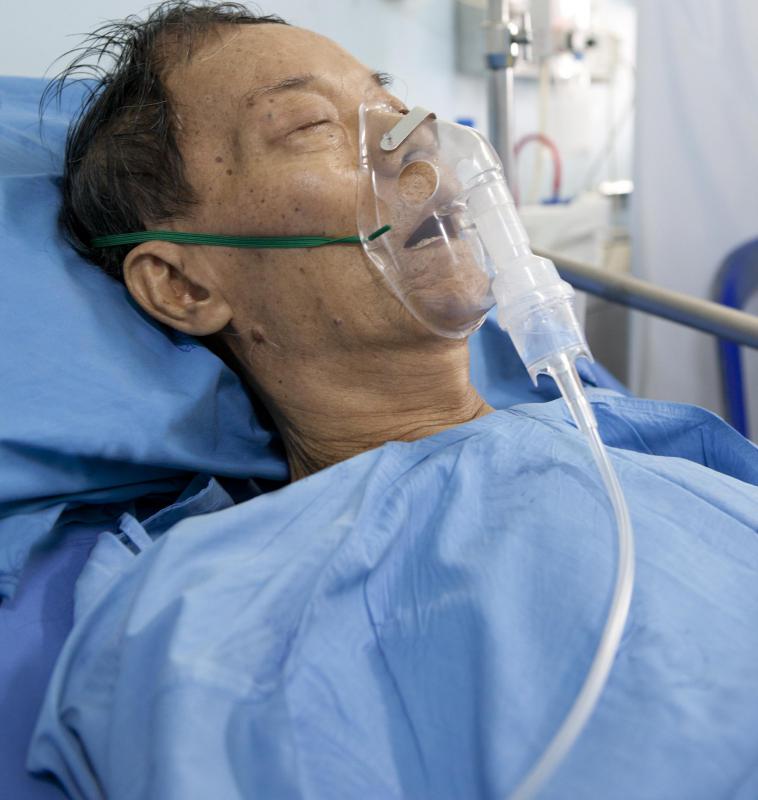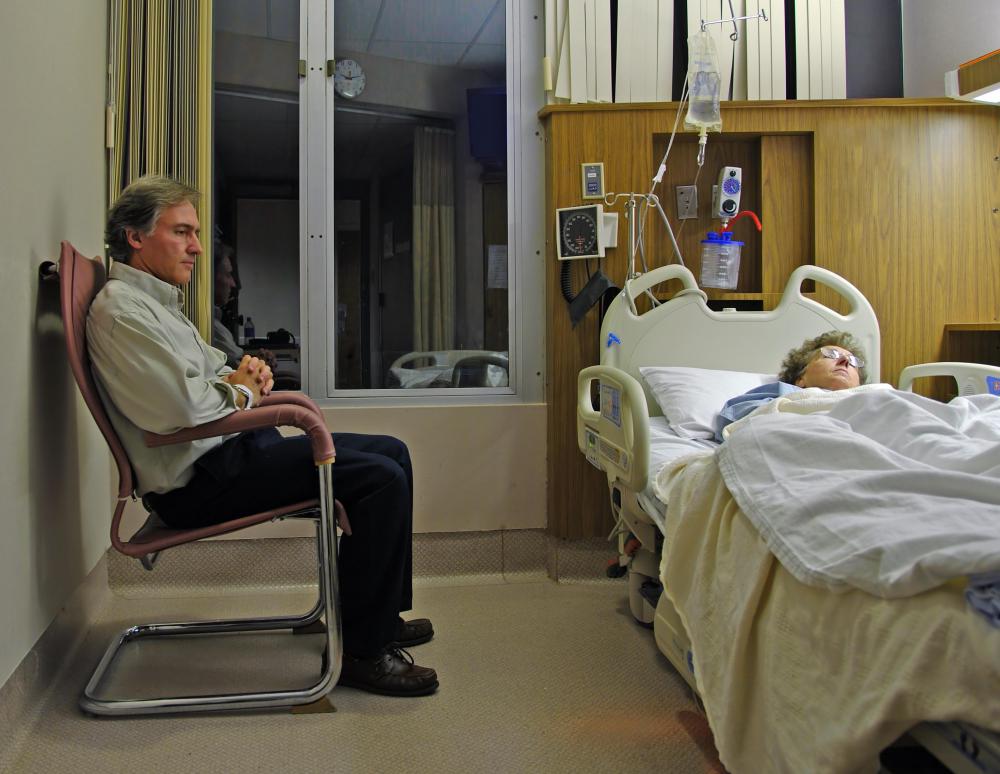At TheHealthBoard, we're committed to delivering accurate, trustworthy information. Our expert-authored content is rigorously fact-checked and sourced from credible authorities. Discover how we uphold the highest standards in providing you with reliable knowledge.
What is Pulmonary Edema?
Pulmonary edema is the accumulation of fluid in the lungs. It can be caused by many different factors, and is potentially dangerous if not treated quickly. Despite the danger it poses, such as that of respiratory failure and subsequent death, the prognosis is usually good when treatment is initiated early. Most causes of this disorder are related to some form of heart problem, which makes fluid removal by normal blood circulation impossible, or are as a result of lung trauma. The exact treatment for each case depends on its cause, and will also focus on eliminating the underlying cause.
Difficulty breathing is one of the more common symptoms of pulmonary edema. This symptom can manifest itself in various ways. Some feel it as a sudden and complete inability to breathe in the middle of the night, and others feel breathless whenever they lie flat. Still others experience it constantly, accompanied by a persistent cough that may produce blood or mucus that is pink from the presence of red blood cells. Excessive sweating and anxiety are also frequently experienced by those with the condition.

It is usually obvious that emergency medical attention is needed for this condition when it happens. If treatment is not available or not sought, the body goes into a state of hypoxia. Put simply, this means that the body cannot get enough oxygen, and may start shutting down its major systems. When this occurs, coma can quickly follow.
The first stages of treatment for this condition include administering oxygen, and sometimes medication as well. One or more of several medications can be used, including opioids to relieve shortness of breath, and aspirin to thin the blood, making it easier for the blood to deliver oxygen through small vessels. Blood pressure medication may also be given, if high or low blood pressure was a contributing factor.

Normally, heart conditions are at the root of this condition, except in cases such as high altitude pulmonary edema (HAPE). This occurs when a mountain climber ascends relatively quickly to a high altitude. Oxygen is usually the best on-site treatment, but rescue may be needed in the most severe cases. In remote areas where immediate rescue is not an option, certain techniques have been developed to treat HAPE. These include placing the affected person inside an airtight hyperbaric bag, which is pressurized to mimic a lower altitude.
AS FEATURED ON:
AS FEATURED ON:



















Discuss this Article
Post your comments